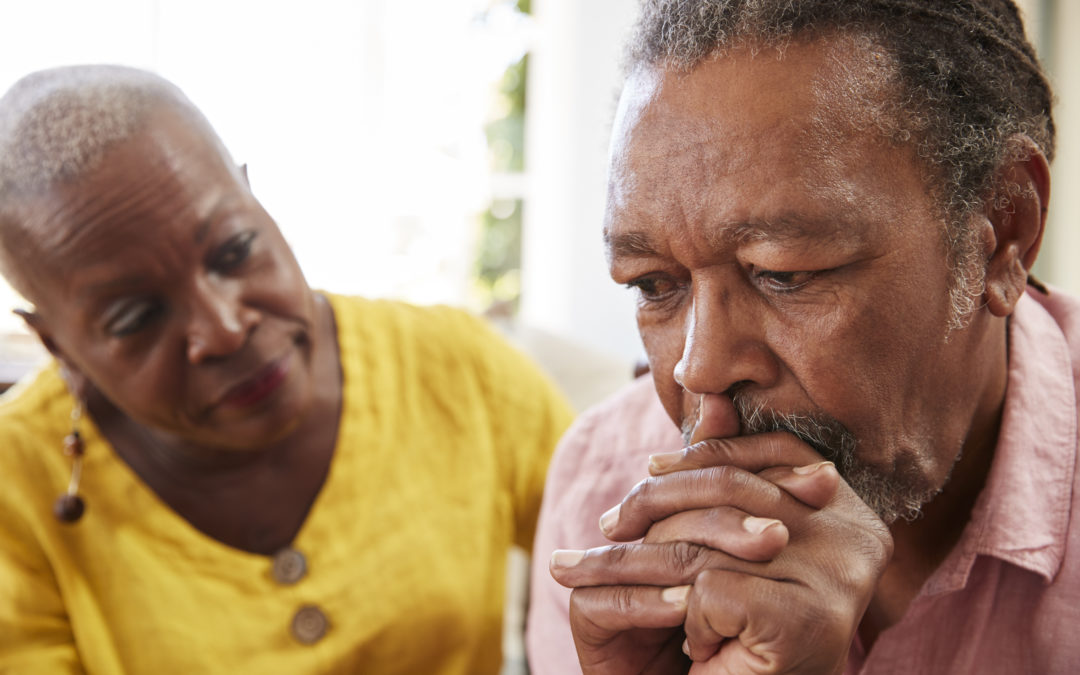Based on the Healthy Aging Program from the Centers for Disease Control and Prevention (CDC) and the National Association of Chronic Disease Directors (NACDD), over 20% of those in the US that are 55 years old and above experience some mental health issues. And according to Mental Health America, more than two million older adults aged 65 years and older live with some form of depression.
Depression, the most prevalent mental health condition among older adults, can be triggered by other chronic health issues such as Alzheimer’s disease, arthritis, cancer, etc. Mental illness is a common condition in many older adults but is often overlooked as some may confuse it with the normal signs of aging. If mental health problems are left untreated, they can cause serious disturbances in the mind and body; and may even affect their way of living.
Building awareness about mental health in the elderly and knowing the warning signs can help your aging loved one get the proper treatment. Below are the ways to recognize mental health problems in the elderly.
Neglect in personal care
People with mental health issues will lose interest in almost everything, including his or her daily personal care routine. Because the person no longer pays attention to personal care, you may notice a visible change in your elderly loved one’s personal appearance. Forgoing bathing and leaving the house unpresentable could be a sign that your elderly loved one is suffering from mental health problems.
Withdrawal from social activity
Another clear warning sign that your elderly loved one is experiencing mental health issues is his or her withdrawal from social activity. Self-isolation is most often not a healthy sign. Not attending the usual meetup with friends or social activities is normal. However, if you notice your loved one to be more reclusive and suddenly avoids regular social activities, there must be some problem he or she is facing.
Mood swings
While we do mood swings once in a while, dramatic and unexpected changes in the personality is one way to recognize mental health problems in the elderly. A sudden change in the behavior or disposition is a typical sign of mental health problems such as depression, especially if the person cycles irregular moods throughout the day. Apart from that, your elderly loved one suffering from mental health problems may feel guilty or worthless and often resort to self-blaming.
Reduced appetite
Mental health problems can affect a person’s appetite too. Sometimes, we lose our appetite when we are feeling sick. But a drastic change in the person’s diet habits is a warning sign of a more serious problem. This is the reason why many elderlies suffering from mental health problems lose weight rapidly.
Sleep problems
Because there are so many negative thoughts running in the mind of a person with mental health issues, sleeping habits can be affected too. Often, your elderly loved one with mental health issues will experience insomnia or even sleep too much.
When you notice these warning signs in your elderly loved ones, it is important to immediately speak to a professional. There is no “one size fits” all in treating mental health conditions. After diagnosing the mental health condition, the doctor will then make a treatment plan according to your elderly loved one’s needs.


Recent Comments